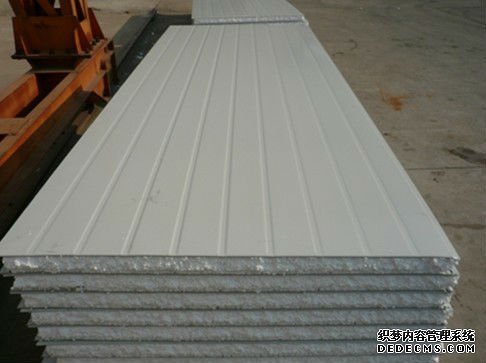Building Stronger Structures with EPS Panels: The Key to Lightweight and Resilient Buildings
Building Stronger Structures with EPS Panels: The Key to Lightweight and Resilient Buildings
EPS (Expanded Polystyrene) panels are versatile materials that find widespread application in the construction industry and beyond. Their unique properties, such as lightweight, thermal insulation, durability, and moldability, make them highly sought after in various sectors. Let's explore in more detail the extensive applications of EPS panels in construction and building materials.

-
Building Insulation: EPS panels are widely recognized as one of the most effective insulation materials available. They are used for thermal insulation in external walls, roofs, and floors. EPS panels possess excellent thermal resistance, minimizing heat transfer and reducing energy consumption. By effectively insulating buildings, EPS panels contribute to energy efficiency, reduce heating and cooling costs, and create comfortable living and working environments.
-
Structural Components: EPS panels play a crucial role in constructing durable and resilient building structures. They are used for walls, roofs, and flooring systems, offering excellent load-bearing capacity while maintaining a lightweight structure. EPS panels provide strength and stability to buildings, enhancing their resistance to seismic activity and ensuring long-term structural integrity.
-
Soundproofing and Acoustic Control: EPS panels have exceptional soundproofing properties, making them an ideal choice for minimizing noise transmission within buildings. They are used in partition walls, ceilings, and floors to create acoustic barriers, resulting in quieter and more peaceful indoor environments. EPS panels effectively absorb and dampen sound vibrations, contributing to enhanced privacy and improved acoustics in various spaces such as offices, theaters, and recording studios.
-
Exterior Cladding and Facades: EPS panels are widely employed in exterior cladding and facade systems. They provide aesthetic appeal while offering additional thermal insulation and weather protection to buildings. EPS cladding systems can be designed in various shapes, sizes, and textures, allowing architects to create visually appealing facades. Additionally, EPS panels are lightweight, simplifying installation and reducing the load on the building's structure.
-
Green Building Practices: EPS panels are recognized for their sustainability and eco-friendly characteristics. They are often used in green building projects to enhance energy efficiency and reduce environmental impact. EPS panels are recyclable, and their production requires less energy compared to other building materials. By incorporating EPS panels, builders can achieve LEED (Leadership in Energy and Environmental Design) certification and contribute to sustainable construction practices.
-
Industrial and Commercial Applications: EPS panels are utilized in a wide range of industrial and commercial applications. They are used for cold storage facilities, warehouses, agricultural buildings, and prefabricated structures. EPS panels provide excellent insulation and temperature control, ensuring optimal conditions for storing perishable goods and maintaining controlled environments.
-
Interior Design and Decorative Applications: EPS panels offer flexibility in design and are used for interior applications such as decorative ceiling tiles, architectural moldings, and artistic installations. Their lightweight nature allows for easy installation, and their moldability allows for creating intricate designs and unique patterns. EPS panels can be customized to meet specific design requirements, adding aesthetic value to interior spaces.
In conclusion, EPS panels have diverse applications in the construction and building materials industry. They are extensively used for insulation, structural components, soundproofing, exterior cladding, green building practices, industrial applications, and interior design. The versatility and performance of EPS panels make them an indispensable choice for architects, builders, and designers seeking efficient, sustainable, and aesthetically pleasing solutions.

